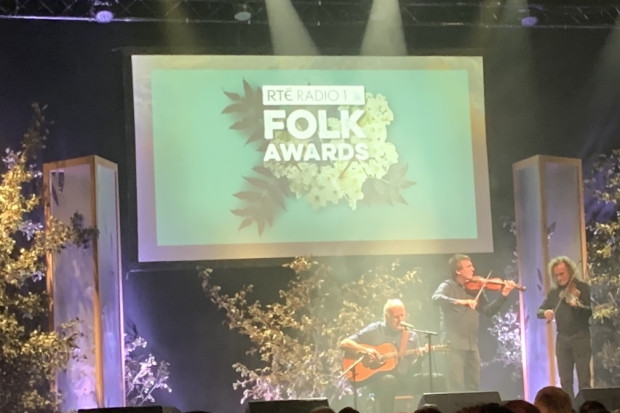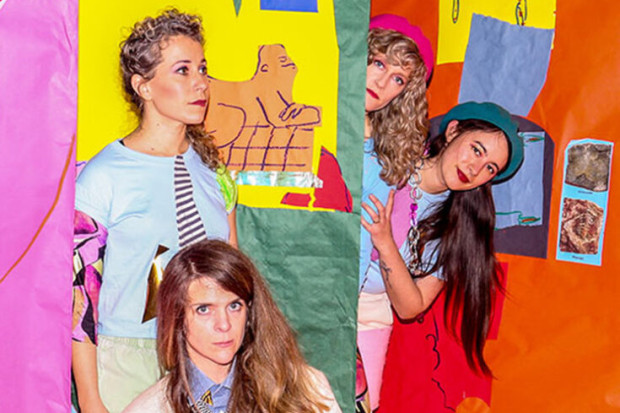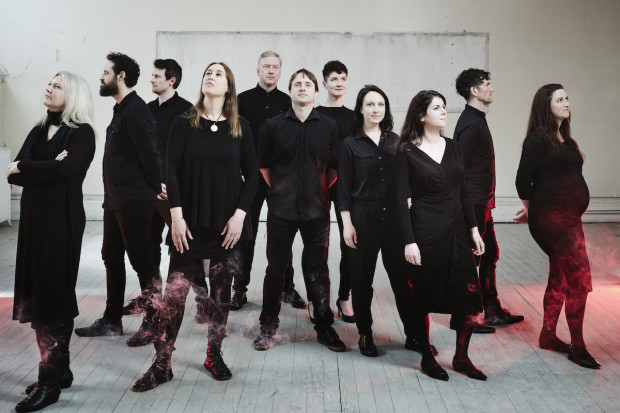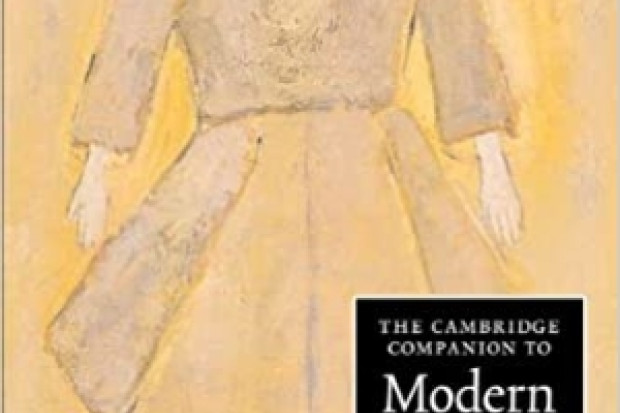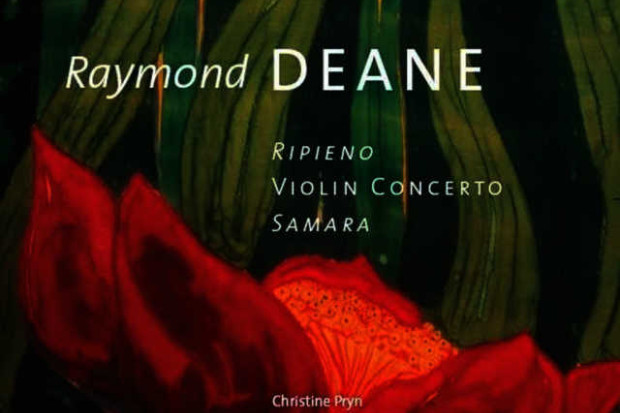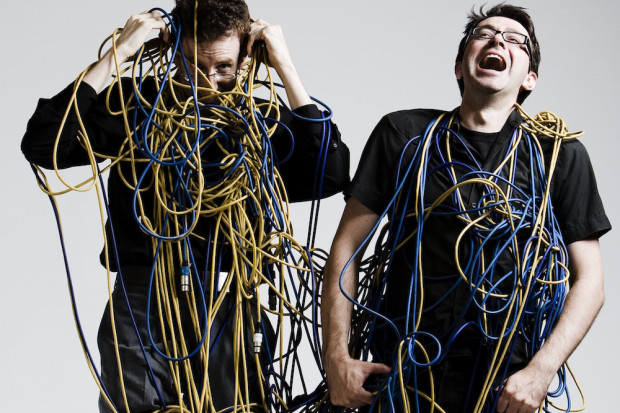Identity on Parade
Perspective
As with individuals, so with nations: an incessant harping upon one’s ‘identity’ is the prerogative – and the curse – of those whose identity has been subject to suppression. Imperialist nations are in the business of suppression, but also of imposition: they seek to impose on subject nations an identity that accords with the imperial perspective. We Irish, a still-divided nation recovering from centuries of occupation, are more obsessed than most with our ‘identity’. Robbed of our language, we seem to have little collective sense of loss. Our greatest novelist James Joyce chose to invent new fictional forms and, in Finnegans Wake, a new language in which to embody them. Samuel Beckett abandoned English altogether in favour of a deliberately impoverished, deterritorialised French. Flann O’Brien in turn, master of multiple (non-) identities, sought in The Third Policeman to deterritorialise English itself, as if it were the translation of a language from nowhere on earth (or perhaps Hell…).
Our best-known present-day novelists have no truck with such refinements and have chosen to write mainstream realist novels in the Queen’s English, a venture that has won them many accolades and much profit. The latent message of contemporary Irish fiction in English, whatever its manifest content, is: ‘Look at us, we can do exactly what the Brits do, and do it just as well if not better.’ In the theatre, playwrights have turned away from Beckettian ‘experimentation’ and chosen instead to prospect tirelessly the territory between (fully fitted) kitchen sink and hag-ridden bog. The most radical and exciting of our poets – Thomas Kinsella, perhaps, or Trevor Joyce – are practically ignored, as if they were an embarrassment.
The visual arts may well have profited from their non-linguistic status. Questions of ‘identity’ and its cousin ‘tradition’ tend, in the discourse of the visual arts found in the magazine Circa or in Aidan Dunne’s Irish Times articles, to give way to the conventions of global artspeak. In other words, nobody drones on about the ‘Irishness’ of Ciarán Lennon, James Colman, or Eilis O’Connell; indeed their internationalism is undoubtedly a part of their perceived credibility. A special case, however, is that of Seán Scully. Although he departed these shores at the age of four, and is variously referred to as English, American, or Irish-American, he repeatedly claims that his ‘Irishness’ is central to his identity without (to the best of my knowledge) ever having clearly defined either ‘identity’ or ‘Irishness’.
Music falls into yet another category. Conventionally, music is described as a ‘language’, even as a ‘universal language’, a language of the feelings that requires no translation. In his influential The Language of Music (OUP, 1959), the English musicologist Deryck doggedly attempted to codify the ‘vocabulary’ of this language. However, he confined his investigation to Europe, ‘since if music is an international language within a given continent, it is certainly not an inter-continental language’, and to ‘tonal’ music since non-tonal music ‘does not express the simple fundamental sense of being at one with nature and life.’ The strong implication here is that non-European music also fails to express these fundamental verities, and hence fundamentally lacks meaning.
In Ireland, Seán Ó Riada was simultaneously heading in the opposite direction. For him it was necessary to renounce the foreign language of European tonality in order to ‘redeem’ Irish music. At first this took the form, quite simply, of a renunciation of tonality; the result was a series of Nomoi in which the composer uneasily and rather amateurishly toyed with 12-note technique. Most interestingly, in the unfinished Nomos II he attempted to dramatise the very process whereby Western tonality disintegrated as a meaningful creative vehicle. In the wake of these honourable failures, Ó Riada renounced art music completely and fled to the Cork Gaeltacht, there to seek redemption in the Irish language and the renewal of traditional music, regarded essentially as ‘the Irish musical language.’
Since his death, that language developed an increasingly pronounced mid-Atlantic accent, culminating in such sexy spectacles as Riverdance and Lord of the Dance. Simultaneously, the practitioners of a supposedly ‘pure’ traditional music (which was by no means static or retrograde in its evolution) remained, as far as the general public was concerned, locked into the category of ‘specialisation’.
In the ‘classical’ field, the late Gerard Victory frequently rephrased the question of an Irish tradition or musical identity in terms of ‘perspective’, usefully claiming that Irish composers shared a common perspective but not necessarily a common way of composing from within that perspective (a ‘language’). ‘Perspective’ implies a location or site from which the relationships between things may be observed. Such a site may itself be multiple: the Irish composer, located (or not) in this physical Ireland with its specific history, is also located, by training and by habit, within a European tradition of art music (or not). These parenthetical negatives emphasise the individual’s personal interpretation of their site: recall Seán Scully’s decision to be Irish, although he has scarcely lived on the island.
The practice of contemporary Irish composers – from Roger Doyle and Gerald Barry to Donnacha Dennehy and Siobhán Cleary to the youngest generation of technologically clued-in practitioners – shows an assuredness of stance and a rich variety of perspective that is missing from modern Irish literature, and has perhaps more in common with the visual arts. Unlike the latter, however, it receives little official recognition from the Arts Council, which sometimes seems to be hell-bent on dismantling the whole ‘sector’. Musicology itself, being mired in the conventions of ‘language’, ‘tradition’, and ‘identity’ (and perhaps one should add ‘genre’), has failed to deal interestingly with anything that these composers have done and are doing. It is not surprising, therefore, that the wider world of academic and journalistic chatter has preferred silence, according to classical composers, once again, ‘the honour of non-existence’.
The Cultural Identikit
The above reflections on ‘perspective’ may seem close to fashionable notions of ‘multiple identity’, as famously advocated by Fintan O’Toole. The Good Friday Agreement, in his influential interpretation, represented a dissolution of conventional notions of fixed, unitary identity, in favour of a more playful concept of identities that may be donned and discarded at will – today you are Irish, tomorrow British, next week European. The EU, of which O’Toole is a passionate defender, is supposedly admirable because, alongside encouraging such post-modern schizophrenia, it promotes a ‘pooling’ of sovereignty that would render traditional nation states and traditional nationalism equally redundant.
There are some banal problems here. The surrender of sovereignty might theoretically cause few problems for those whose sovereignty has long been unchallenged. Nations that have been robbed of it or that have never fully achieved it may have different views, perhaps preferring to attain and enjoy sovereignty for a while before voluntarily surrendering it. Similarly, those nations most enthusiastic about eliminating other nations’ sovereignty are usually just as inclined to go on increasing their own – this is known as Imperialism, and it hasn’t gone away, you know.
Much the same may be said about ‘identity’. Those whose identity is already stable may enjoy donning new ones; those whose identity is not, may be further destabilised. Try telling the Palestinians that they should deal more playfully with their beleaguered identity, and that notions of ‘sovereignty’ are old hat…. O’Toole, I’m certain, wouldn’t be so crass: yet this is precisely his attitude towards the Northern Irish minority population.
Recently Andrew Higgins Wyndham of the Virginia Foundation for the Humanities approached the same Fintan O’Toole with the idea of a festival to be called ‘Re-Imagining Ireland: Transformations of Identity in a Global Context.’ O’Toole ‘put together a group of 10 project consultants, and the programme grew from there’ (Wyndham, cited in ‘Imagining what Ireland could be’, Irish Times, 14 May 2003). The festival included an exhibition at the University of Virginia Art Museum that featured ‘artistically and politically challenging’ works by such visual artists as Dorothy Cross, Alice Maher, Shane Cullen, John Kindness and Geraldine O’Reilly – a genuine cross-section, it would appear. There was a talk on ‘Irish Art Today’ by Declan McGonagle and Catherine Marshall. There were political and ideological debates featuring the likes of Ronit Lentin, Liz O’Donnell, Bríd Rogers, Mary Condren, Joe Cleary and, repeatedly, Fintan O’Toole. There were poetry readings, theatrical presentations and films. As in any identity parade, the usual suspects were there en masse (Colm Tóibin, Roddy Doyle, Frank McCourt, Roy Foster, Paula Meehan, Cathal Ó Searcaigh) and some even appear to have talked sense (the ubiquitous Theo Dorgan had the courage to challenge Bush’s war and its Irish apologists).
The musical dimension of this carnival needs closer analysis. The focus, not surprisingly, was on traditional music. However, this did not mean that your favourite piper or sean-nós singer was flown over from the recesses of Galway or Clare. The emphasis appears to have been on the urban(e), Irish-American transmogrification of the tradition, with a dash of the Celtics supplied by Mícheal Ó Súilleabháin. Of course there is nothing inherently wrong with this, but it is hard to avoid the sense that a specific agenda was being pushed, one that necessitated certain omissions.
This sense becomes a certainty when it comes to classical music, which was entirely omitted from ‘Re-Imagining Ireland’. Evidently Fintan O’Toole and his ten project consultants were unable to come up with a single composer or performer worthy of standing alongside Martin Hayes or Andy Irvine, to say nothing of Roddy Doyle or Gerard Stembridge. Despite the lively debates that have raged in this journal since its inception, debates that surely have a far wider cultural and political relevance, nobody from the ‘classical’ world could be found with anything interesting to say. Although the ‘Imaginaire Irlandais’ festival of 1996, imaginatively curated by Doireann Ní Bhrian, found room for a strand of classical music from John Field to Gerald Barry, and although Irish classical music is featuring more and more prominently in international festivals from Montreal to Hong Kong (invariably as a result of the efforts of composers themselves, with little official support), O’Toole and his ten project consultants were unable to imagine, let alone re-imagine, any such strand for Virginia.
Could this be put down to mere ignorance? But then could these consultants not have consulted with some other consultants? Furthermore, in his introductory essay to a recent Irish Times series of articles on the arts in Ireland, O’Toole made some far more pertinent and incisive comments about the state of classical music here than were to be found in the subsequent article by that paper’s chief music critic. This suggests that the omission was deliberate, and raises the suspicion that classical music quite simply didn’t fit in with a template of Irish identity that covertly lay behind the selection procedures for the event.
Perhaps the concept of ‘transformations of identity’ is itself the culprit. Like the ideology of ‘multiple identities’, this notion remains imprisoned within the framework of identitarian thinking that it is supposed to have superseded. The radical critic David Lloyd has written: ‘It is the failing of Irish nationalism never to have questioned the idealism of identity thinking, which, even in its resistance to imperialism, links it closely to imperialist ideology’ (Nationalism and Minor Literature, University of California Press, 1987). Equally, from our point of view, this failing marks much Irish anti-nationalism. Reading O’Toole, it is difficult to avoid the conclusion that he has replaced one officially authorised identity with another: no longer nationalistic, Catholic and rural, but cosmopolitan, agnostic, and urban. Irish classical music has, in its practice if not its reflection in musicology, long since bypassed this whole identitarian traffic-jam, and in its freedom of perspective has had no truck with either of these paradigms. Unable to deal with such non-conformism, those behind ‘Re-Imagining Ireland’ chose the traditional resort of identitarian mandarins: suppression.
Published on 1 July 2003
Raymond Deane is a composer, pianist, author and activist. Together with the violinist Nigel Kennedy, he is a cultural ambassador of Music Harvest, an organisation seeking to create 'a platform for cultural events and dialogue between internationals and Palestinians...'.










